Lindstrom & UNICEF
Lindstrom supports UNICEF’s water and sanitation work in India
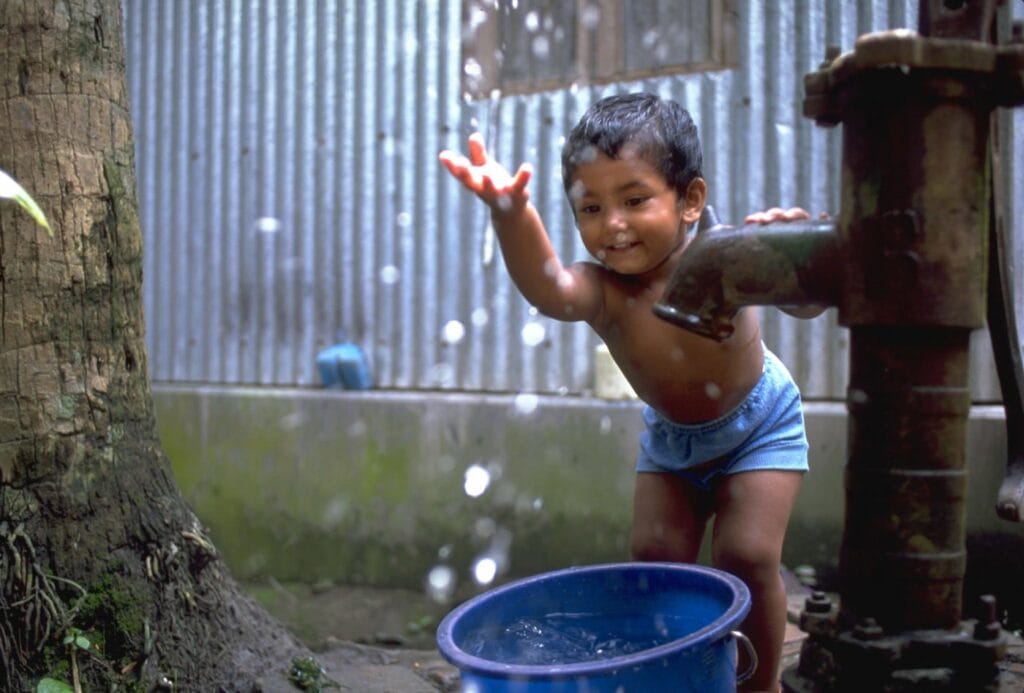
Lindstrom supports UNICEF’s water and sanitation work in India
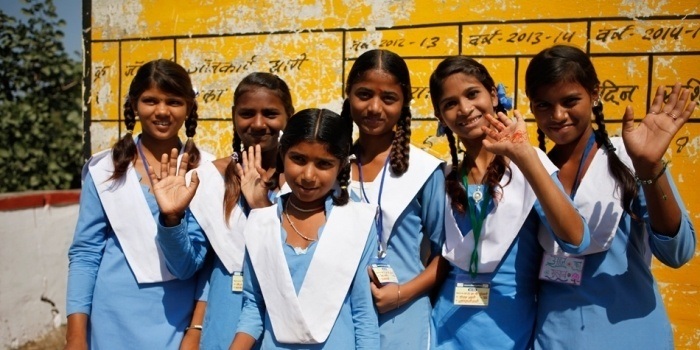
Over the next three years (2018-2020), Lindstrom will support UNICEF’s water and sanitation work in India. The partnership not only promotes child rights, but advances the sustainable development goals.
Lindstrom and UNICEF Finland have had a partnership for over a decade. Clean water has always been in the heart of the co-operation. Lindstrom has earlier supported UNICEF’s water, sanitation and hygiene programs in the states of Bihar, Madhya Pradesh and Rajasthan. In the new three-year period, Lindstrom supports thematically the same work all around India.
From these pages you find stories related to our co-operation in India during our partnership for over decade. Find out how UNICEF have had impact in everyday life of children living in India.
Toilets, clean hands and drinking water for children in India
Majority of people in India live in rural areas in primitive conditions, meaning that participating in social development is in the hands of the few.
When we began operating in India 2007, we also wanted to begin supporting less well off people in the country. We started collaboration with UNICEF Finland.
WASH (Water, sanitation and hygiene) project ensures child friendly toilets and hand washing facilities, better hygiene practices and changes in attitude that dissipate far and wide into the community. Having access to safe drinking water, proper sanitation and hygiene facilities is every child’s right.
Pictures ©UNICEF/India 2015/Haru
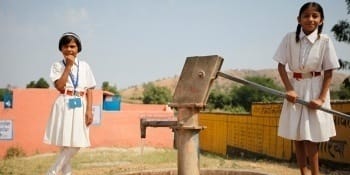
Access to water, sanitation and hygiene as the right of every child
Access to clean water, sanitation and an adequate standard of living are universal human rights. In spite of global efforts to improve the situation in many countries — especially developing ones — attention and resolute action are still required. And we want to be a part of helping those in need.
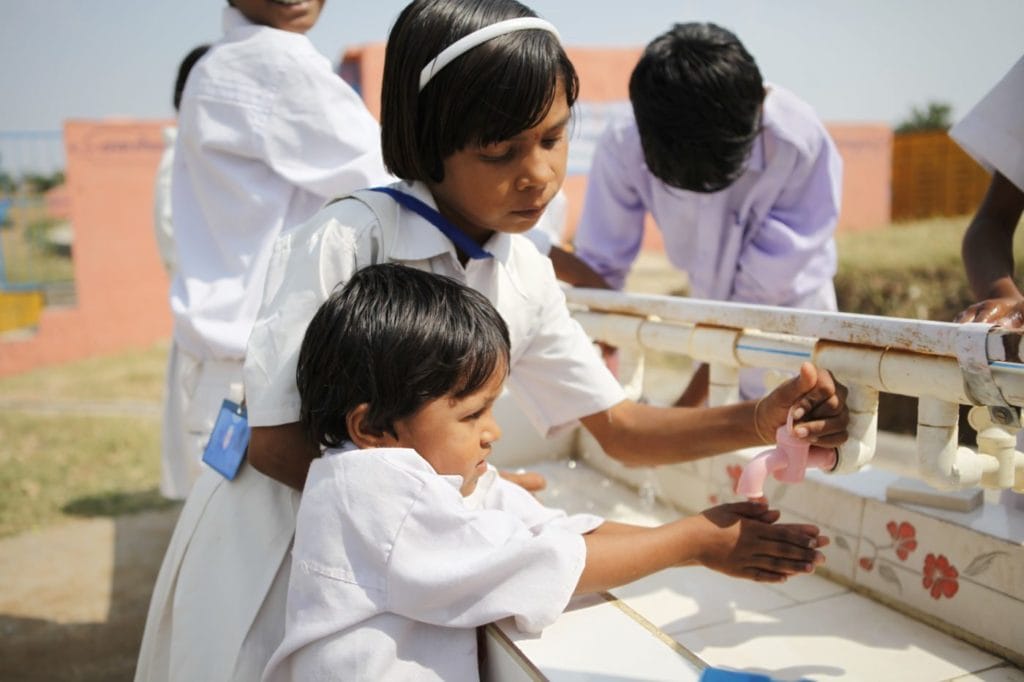
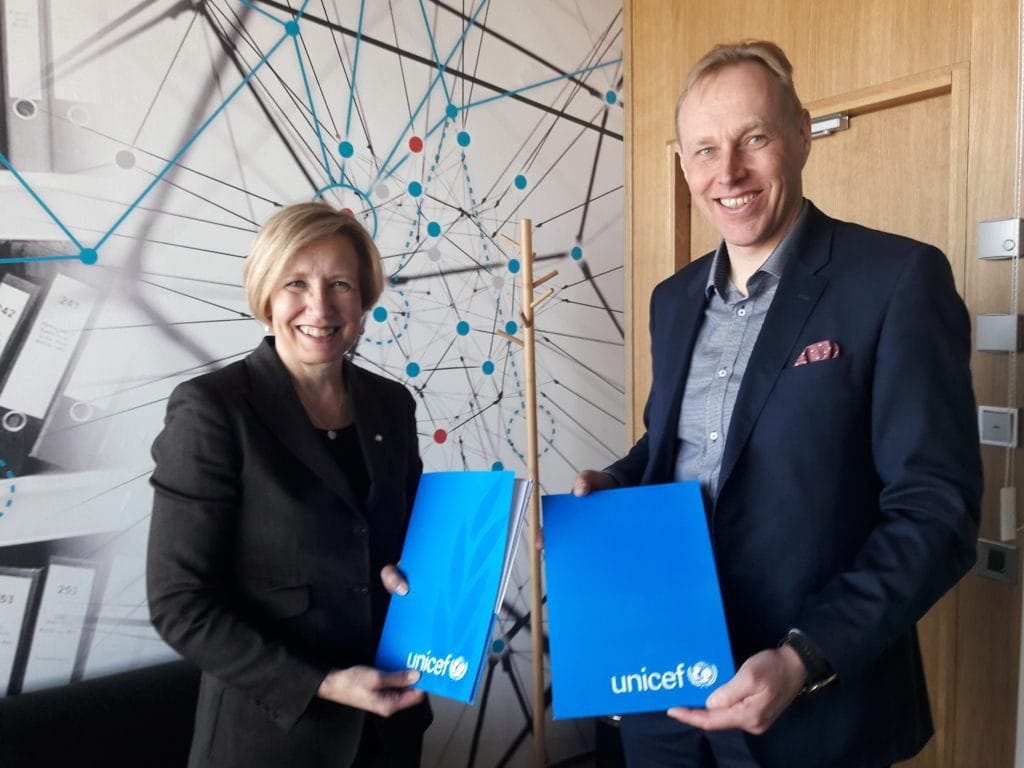
Lindstrom and UNICEF Finland to continue their partnership
Over the next three years, Lindstrom will support UNICEF’s water and sanitation work in India. The partnership not only promotes child rights, but advances the sustainable development goals.
Helping 94 000 school children in Rajasthan, India
In India, more people have mobile phones than toilets. Approximately half of India’s 1.2 billion people live without a toilet of any kind.
For ten years, we have been one of the main supporters of UNICEF’s WASH project (Water, Sanitation and Hygiene) in India. With the help of this valuable long-term partnership, we have been able to improve water, sanitation and hygiene conditions in the poorest areas of India. This story concentrates to the work what we have accomplished within the co-operation (2014-2017) in Rajasthan, India’s most populous region, focusing on the tribal areas with the poorest conditions.
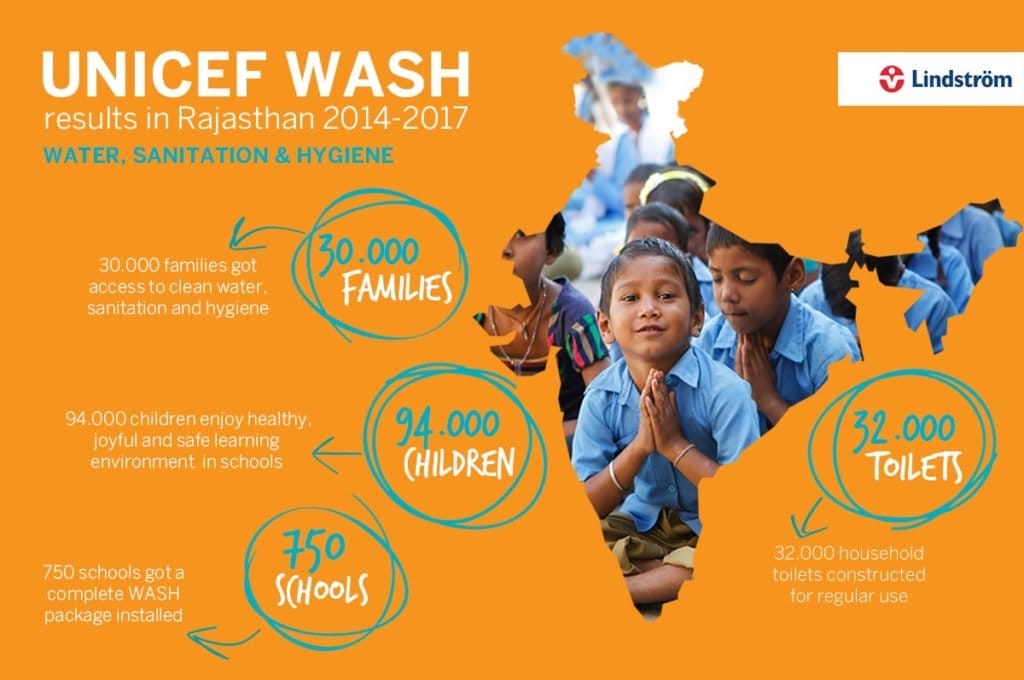
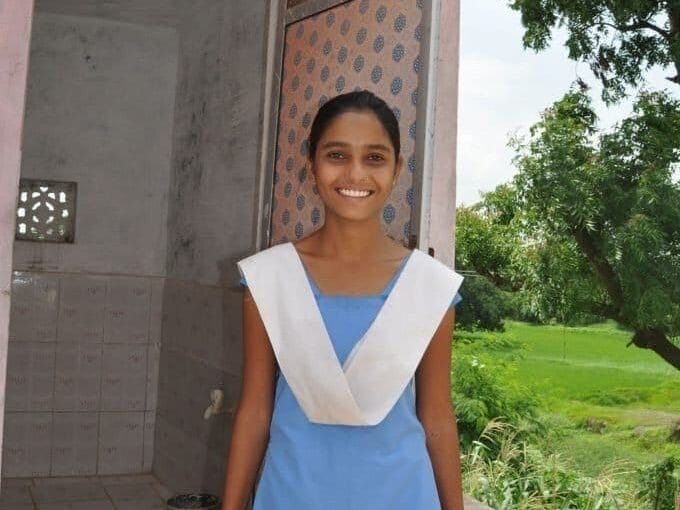
Story of Sonia – “Coming to school is no longer a problem for us”, says Sonia, eleven year old girl from Rajasthan.
Today Sonia is happy to act as a prime minister of the child cabinet of Kanyala Ghata Primary school in Rajasthan, India. She mentions with a smile: “Coming to school is no longer a problem for us. My friends and I are very happy that Hiralal sir met the senior members in the community and started having discussions and meetings with them. Our parents were also called to attend these meetings.”
Clean India – When we have an influence in India, we have an influence on the entire world
UNICEF works to promote the rights and improve the lives of children in 190 countries. India is one of the most populous countries where the majority of the population lives in primitive conditions in rural areas. People often have no access to clean drinking water and sanitation, and rates of child mortality are high. One in ten deaths in India are due to illnesses caused by poor hygiene.
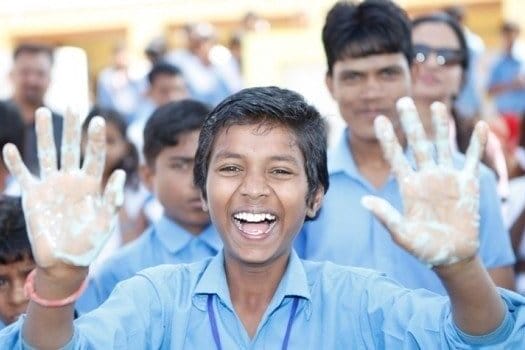
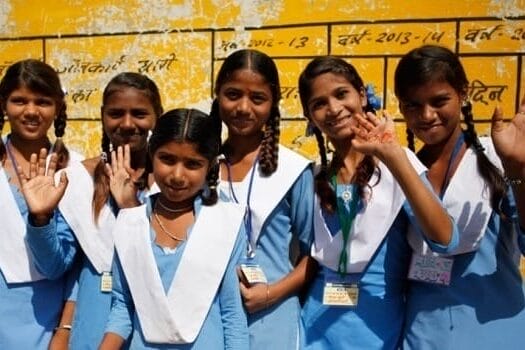
Wash in action – Children of Rajasthan making a change
The WASH project in Rajasthan, India encompasses 750 schools, 93,000 pupils and – via the children – 40,000 households in the tribal areas of Udaipur and Dungarpur. In these schools, UNICEF has worked with partners to disseminate information about hygiene, provide instruction on building and maintaining hand-washing stations, toilets and distribution points for drinking water in schools, and offered to share its expertise with village communities.
Rajasthan ODF villages – Kathan Gram Panchyat became an ODF village in just three months
In the rural tribal areas of Rajasthan, more than 90 per cent of the population do not have a toilet. Kathar Gram Panchyat, an area of seven remote villages and 1,160 households, became free of open defecation in just three months. Change is possible. It is possible even in the most hard-to-reach areas and among the most vulnerable sections of the population. The joint efforts of children and women were the key drivers that made this happen.
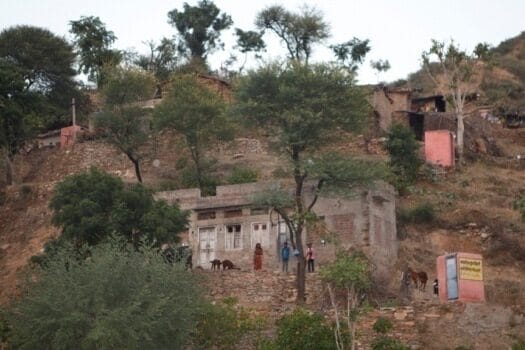

Season’s greetings with UNICEF -Long-term collaboration continues in India – improving sanitation leads to wide-ranging benefits
Lindstrom has been one of the main supporters of UNICEF’s WASH project for more than eight years. All of our charitable donations are made to this valuable long-term partnership, which is realised by UNICEF with the aim of improving the water, sanitation and hygiene conditions in the poorest areas of India. A project is currently underway in Rajasthan, India’s most populous region, focusing on the tribal areas with the poorest conditions.
Lindstrom with UNICEF in Rajasthan, India (Partnership 2014-2017)
